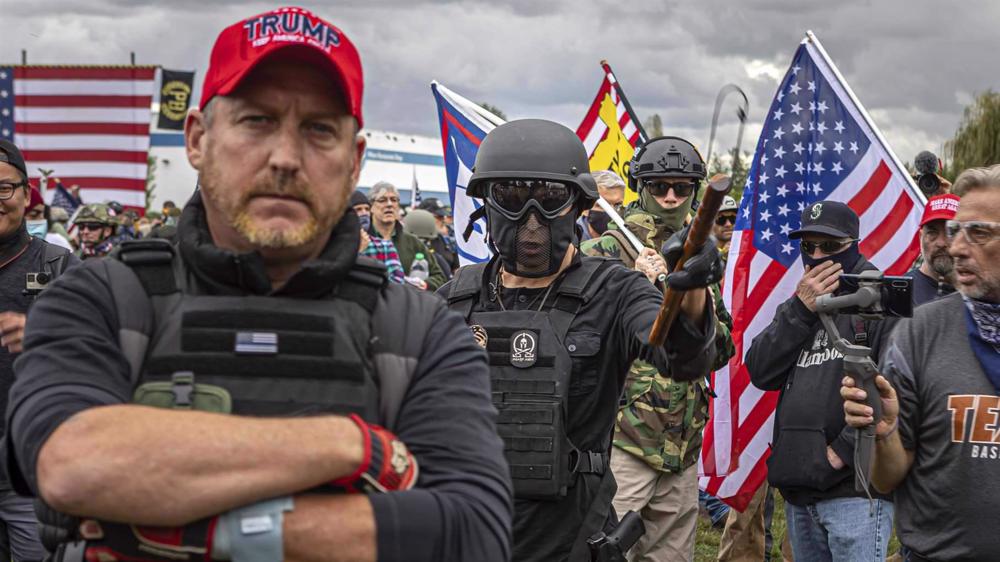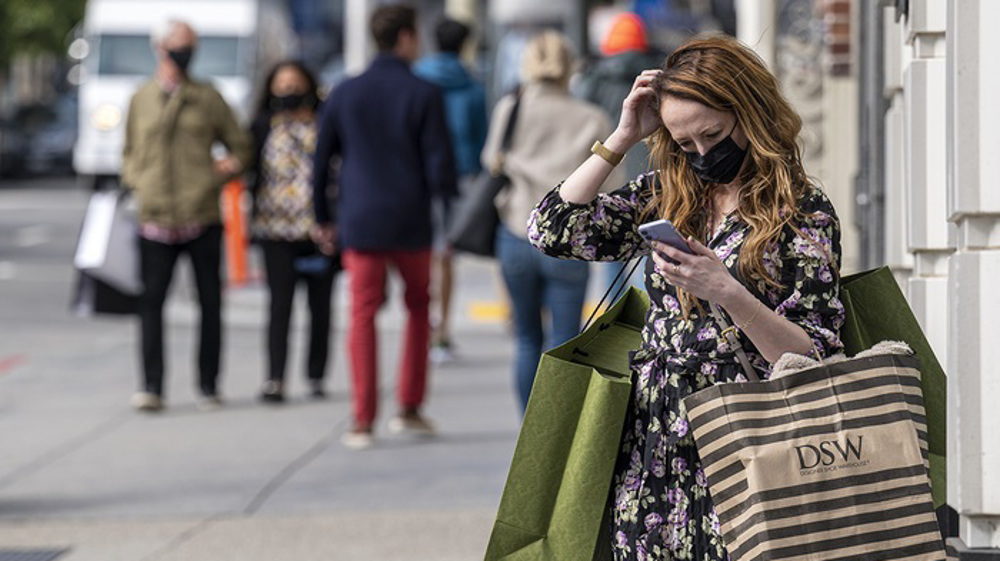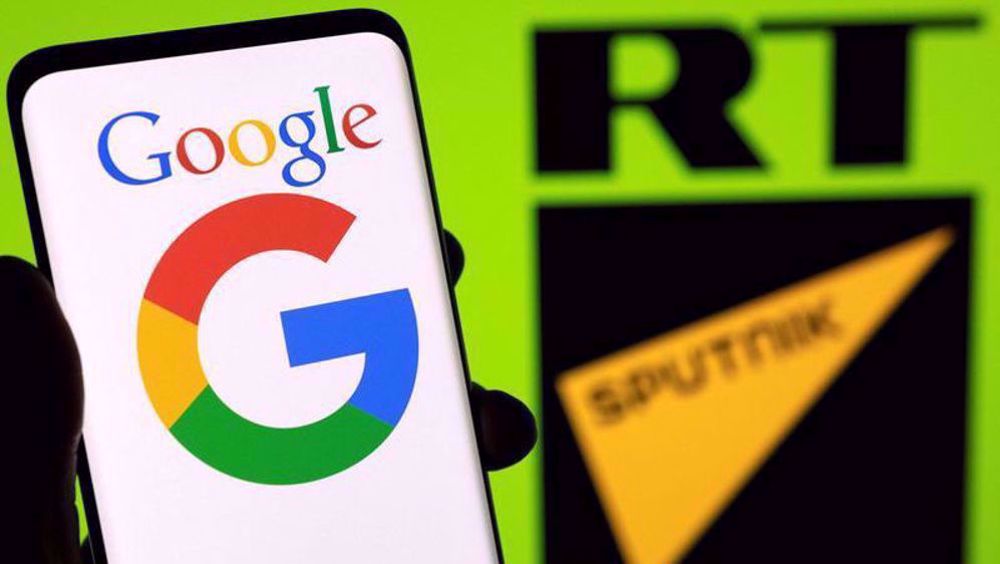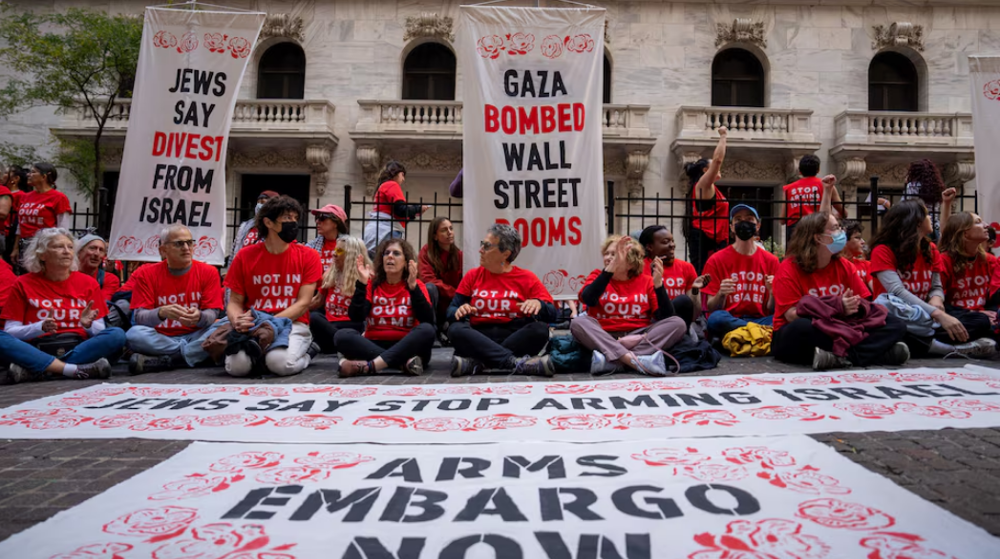NY Times: American society falling apart, on track for total collapse
The American society seems to be on track for total collapse in various aspects, with the boundaries of immoral behavior, social disobedience and racial violence being pushed in an unprecedented way, the New York Times has warned.
In an opinion piece by its veteran commentator David Brooks, the paper touched on an unprecedented rise of disruptive traits, citing reckless driving as an example.
"Not only is reckless driving on the rise," the paper said, "but the number of altercations on airplanes has exploded, the murder rate is surging in cities, drug overdoses are increasing, Americans are drinking more, nurses say patients are getting more abusive, and so on and so on."
Next on its list was the state of education, where "teachers are facing a rising tide of disruptive behavior".
“Schools have seen an increase in both minor incidents, like students talking in class, and more serious issues, such as fights and gun possession. In Dallas, disruptive classroom incidents have tripled this year compared with prepandemic levels, school officials said.”
The Times cited an essay this month by the Institute for Family Studies titled “The Drug Epidemic Just Keeps Getting Worse.”
"The essay noted that drug deaths had risen almost continuously for more than 20 years, but 'overdoses shot up especially during the pandemic.' For much of this time the overdose crisis has been heavily concentrated among whites, but in 2020, the essay observed, 'the Black rate exceeded the white rate for the first time.'"
The paper also mentioned a CNN story in October titled “Hate Crime Reports in US Surge to the Highest Level in 12 Years, FBI says.”
"The FBI found that between 2019 and 2020 the number of attacks targeting Black people, for example, rose to 2,871 from 1,972," it said.
"The number of gun purchases has soared. In January 2021, more than two million firearms were bought, The Washington Post reported, 'an 80 percent year-over-year spike and the third-highest one-month total on record'."
According to the paper, Americans’ hostility toward one another seems to be growing, while their care for one another seems to be falling.
"A study from Indiana University’s Lilly Family School of Philanthropy found that the share of Americans who give to charity is steadily declining. In 2000, 66.2 percent of households made a charitable donation. But by 2018 only 49.6 percent did. The share who gave to religious causes dropped as worship service attendance did. But the share of households who gave to secular causes also hit a new low, 42 percent, in 2018," it said.
The Times also touched on the "deteriorating climate" amid a rise in polarization, hatred, anger and fear.
"When I went to college, lo these many years ago, I never worried that I might say something in class that would get me ostracized. But now the college students I know fear that one errant sentence could lead to social death. That’s a monumental sea change," it said.
"But something darker and deeper seems to be happening as well — a long-term loss of solidarity, a long-term rise in estrangement and hostility. This is what it feels like to live in a society that is dissolving from the bottom up as much as from the top down," it added.
The writer wondered over "the high rates of depression, suicide and loneliness that dogged Americans even before the pandemic", saying they were "the sad flip side of all the hostility and recklessness".
"We can round up the usual suspects: social media, rotten politics. When President Donald Trump signaled it was OK to hate marginalized groups, a lot of people were bound to see that as permission," it said.
"Some of our poisons must be sociological — the fraying of the social fabric. Last year, Gallup had a report titled, 'US Church Membership Falls Below Majority for First Time.' In 2019, the Pew Research Center had a report, 'US Has World’s Highest Rate of Children Living in Single Parent Households.'
"And some of the poisons must be cultural. In 2018, The Washington Post had a story headlined, 'America Is a Nation of Narcissists, According to Two New Studies.'
"But there must also be some spiritual or moral problem at the core of this. Over the past several years, and over a wide range of different behaviors, Americans have been acting in fewer pro-social and relational ways and in more antisocial and self-destructive ways. But why?" the Times asked.
Iran relies on natural gas for nearly 90% of its power production: Expert
US embassy in Beirut blocks Iraq-Lebanon humanitarian air bridge
VIDEO | UK's Starmer targets journalists
Israel plans to displace Palestinians in occupied West Bank: Hamas
Iranian airlines ramp up Istanbul route flights after EU sanctions
British protesters slam UK’s complicity in Gaza genocide on Balfour day
US surgeon haunted by Gaza children with ‘single gunshot wounds to head’
VIDEO | Iran's possible retaliation against Israel











 This makes it easy to access the Press TV website
This makes it easy to access the Press TV website